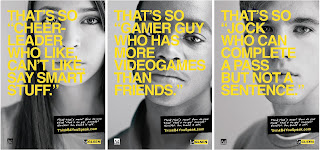Ethics play a large part in life, especially in the lives of college students. The term pertains to morality and character, which is influenced by our environment, upbringing, experiences, religion, and other aspects of life. Without these influences, our morality begins to break down and our ability to decipher between right and wrong is questioned. In regards to plagiarism, plagiarizing is morally and ethically wrong. To plagiarize is to take the ideas and words of another and claim them as your own. The ethical problem with this action is that due credit is not given to the original author. Plagiarizing also eliminates the ability for us as students to effectively learn through our own deductive reasoning and evaluation. If we choose to take the work of others and pass it off as our own, we are falsely implying that the thought processes to come to such conclusions belonged to us, when in fact, we are only choosing not to think for ourselves. Clemson's Academic Integrity Policy states that "as members of the Clemson University community, we have inherited Thomas Green Clemson's vision of this institution as a 'high seminary of learning.'"
In agreement and accordance with the Academic Integrity Policy at Clemson, I will not plagiarize. I plan to continue my education at Clemson and being caught in the act of plagiarizing would not only alter those plans, but also end in extreme embarrassment. I strongly believe that it is important to complete your own work and credit those from which you learn, for both intellectual and moral growth, as well as fairness and accuracy in the measurement of true academic success.
Wednesday, January 26, 2011
Sunday, January 23, 2011
"Think B4 You Speak" Ad Campaign
When searching for ads to analyze, I stumbled upon the "Think B4 You Speak" ads. I had a very difficult time choosing just one, so I decided to show a few from the campaign as they each portray the same message. With the use of pathos, these ads spark emotion in their audience by conjuring strong feelings against the use of the phrase "that's so gay" and picturing teens who look upset or hurt. The dominant yellow phrases shown in the ads relate to a wide range of audience members by attacking stereotypes and showing that "gay" is not just a word, but a type of individual or lifestyle. It emphasizes that we should start associating the phrase with those individuals and realize that our words can be hurtful and offending.
Most people would not say things to deliberately hurt others when describing something that they believe to be "uncool" or something with which they do not agree. For example, we would not say that something is "so gamer guy who has more videogames than friends." That would be ridiculous and extremely stereotypical. Therefore, we should view the phrase "that's so gay" in the same manner. As the audience reads on, we are struck with the main point of the message. In small print, the ad bluntly states "Think that's mean? How do you think 'that's so gay' sounds? Hurtful. So knock it off." These ads contain such a strong message that forces us to think about the things we say and about the individuals around us. The power behind this campaign makes it extremely hard not to be moved by their message and realize it is imperative to "think before you speak."
Most people would not say things to deliberately hurt others when describing something that they believe to be "uncool" or something with which they do not agree. For example, we would not say that something is "so gamer guy who has more videogames than friends." That would be ridiculous and extremely stereotypical. Therefore, we should view the phrase "that's so gay" in the same manner. As the audience reads on, we are struck with the main point of the message. In small print, the ad bluntly states "Think that's mean? How do you think 'that's so gay' sounds? Hurtful. So knock it off." These ads contain such a strong message that forces us to think about the things we say and about the individuals around us. The power behind this campaign makes it extremely hard not to be moved by their message and realize it is imperative to "think before you speak."
Wednesday, January 19, 2011
Get to Know Me!
My name is Courtney Bowie and I am a first year student at Clemson University. I am a sophomore Political Science major from North Myrtle Beach, South Carolina. I plan to minor in Business Management. I love to sing, watch movies, and in high school I was captain of the Varsity cheerleading squad. I also have a younger brother (pictured above, as well) who is currently a freshman in high school and plays baseball. After college, I intend to go to law school and then possibly work with corporate law.
I am looking forward to this semester in English 103!
I am looking forward to this semester in English 103!
Subscribe to:
Comments (Atom)

